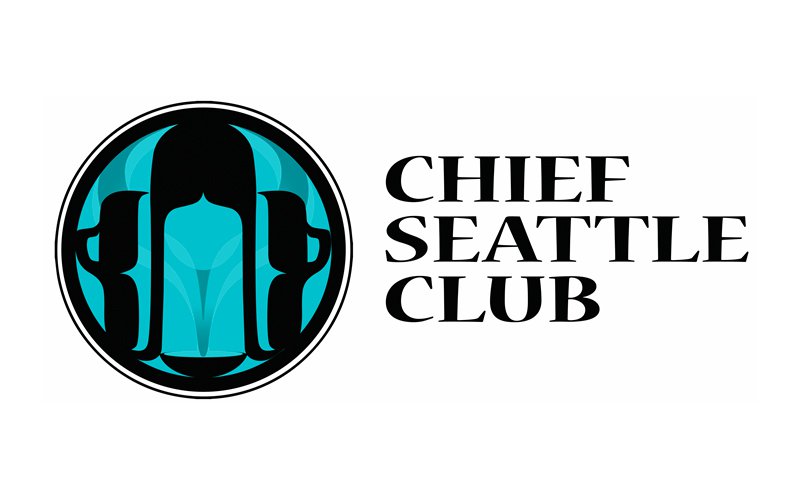
On the second Monday of October 2014, Seattle became the third place in the United States to acknowledge Indigenous Peoples Day, a proposal that was originally made to the United Nations by the American Indian Movement in 1977. In the past four years, it has spread to over 70 places in the United States and has locally become a day to celebrate global Indigenous cultures.
We'll be celebrating Indigenous Peoples Day on KEXP by highlighting Indigenous musicians throughout The Afternoon Show with guest host Gabriel Teodros and on El Sonido with DJ Miss Ashley, in addition to special interviews like this one with Colleen Echohawk, executive director of Chief Seattle Club.
Colleen Echohawk: I am very fortunate to work at the Chief Seattle Club. The Chief Seattle Club is an organization that's been around for 49 years. We began because there was the recognition that native people were becoming homeless in Seattle. That was because of the 1956 Urban Relocation act where native people were moved off of reservations by the Bureau of Indian Affairs and moved into Seattle. When folks got here from all over the country they were set up with housing, they were set up with a job. But if you lose that housing, you lose that job, and you don't have a connection to your community and you already have suffered a lot of trauma – many people became homeless at that time. So that's why the Chief Seattle Club was started. We're now 49 years into it. We're a full human service agency and we're really proud of our team that we have. We have about 30 people on staff. We do a rapid rehousing program which is really important and where we see that native people who might have become homeless, or have been homeless for a long time, [we] try to get them back in housing as soon as possible. That is really important to shorten that amount of time. So we do things like that. We do all the basic needs too, like showers and food and laundry. And most importantly we connect people with traditional and spiritual practices so we have nutritional healers five days a week. And we just try to be that place of home and community.
When people have been out there on the streets for a really long time or are maybe recently homeless, they need to know that the native community is there to support them and that's what we do. I'm the executive director now for four and a half years and it's been one of the greatest and most fulfilling jobs I have ever had. It is amazing. Native people, we have the highest rates of homelessness in the city of Seattle and King County. If you're native and you live here, you're seven times more likely to be homeless. That is an incredible disparity. Something that we're fighting every single day to try to let elected officials and our policy folks know like, "Hey this is a real significant problem and if we truly believe in equity in the city and we really have to dial in deep, understand what is causing these high rates of homelessness and then how do we deal with it and how do we bring people back into wholeness and wellness so that they know that they are loved and accepted, that they belong and that they're wanted in this city that is named after a chief." We're seeing more and more folks becoming homeless and we're also seeing more folks getting shoved out of the city, out of Seattle city limits, because housing is so expensive and housing is unavailable. And so we see people moving out, moving into the suburbs. And that, to me, is really a sad state of affairs. We need to provide housing that is truly low income. That means 30 percent of your income and under, that you're paying towards rent because the rent costs are so high here. To that end, the Chief Seattle Club, we are building a new project in Pioneer Square that will open in 2021.
We're building 80 units of low-income housing right in a historic district in Seattle and I am thrilled with the possibilities that are in front of us. It is just going to be incredible. We're also going to have a clinic on site in partnership with Seattle Indian Health Board and then we'll also have an art gallery and a café on the street level. That's really important because we want to create that space where people can come in, they can feel connected, they can be around people they're not always around and just know that it's a place of acceptance and love and community. I think what gives me hope is seeing someone who has been chronically homeless or newly homeless just getting their keys to an apartment. That's an unreal thing. We have some amazing staff at my organization who are working so hard to to get people into housing. And when I see that smile on someone's face or they tell me, "Hey I'm going home." It just brings me so much joy and happiness.
In honor of Indigenous People's Day, KEXP shines a spotlight on Seattle organizations who are making a difference, like Eileen Jimenez of Highline College's TRiO Program.
The Northwest songwriter breaks down her debut album, highlighting the multi-faceted aspects of her own identity.
In honor of Indigenous People's Day, KEXP talks to Cecile Hansen, the current tribal chairwoman of the Duwamish Tribe, elected in 1975.